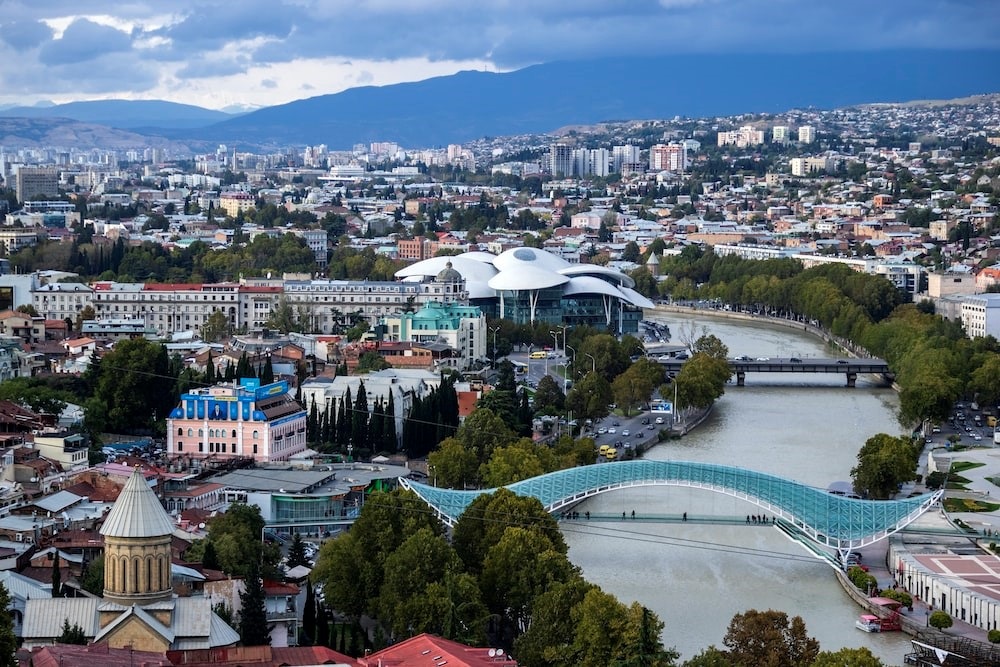Russia’s unprovoked and illegal invasion of Ukraine has reignited the European Union's dormant enlargement policy. Only some years ago, it would have been unimaginable for the EU to endorse the European aspirations of three former Soviet Union countries - Ukraine, Moldova, and Georgia.
However, in June 2022, such acknowledgment took place in an extraordinarily swift procedure. In a historic decision, the European Council granted EU candidate status to Ukraine and Moldova. Georgia was offered a European perspective. All three of them need to fulfil a number of conditions or reform priorities to continue to next step in the accession process. For Ukraine 7 priorities were set, for Moldova 9 priorities and for Georgia 12 priorities.
For all three countries this mark the beginnings of a process that might lead to EU accession. But despite informal bonds among Georgia, Ukraine and Moldova in the framework of the EU Associated Trio, the EU kept Georgia in the waiting room for candidate status. The decision disappointed Georgia. The country, with 85% of its population supporting EU membership, was once considered a frontrunner among the Eastern Partnership countries.
The refusal to grant EU candidacy status led to criticism from the ruling Georgian Dream (GD) party, which accused Brussels of unfair treatment. In response, the EU asserted that Georgia needs to further address shortcomings in its institutional and democratic reforms. Georgia’s ruling party claims that the true reason for EU’s refusal to grant candidate status lies in Georgia’s pragmatic approach towards Russia, particularly its non-alignment with the sanctions against Russia following the Ukraine war.
This cautious approach has its reasons. 20 percent of Georgia’s territory is occupied by Russia since the war in 2008 when it took control of the two breakaway regions Abkhazia and South Ossetia. Without security guarantees from the EU and NATO, Georgia fears retaliation from Russia if it would comply with the sanctions. Yet, questions arise regarding GD’s ability to strike a balance between being pragmatic and not jeopardizing Georgia's pathway to the EU.
Most priorities not completed
The EU set 12 priorities for Georgia to be implemented if it wants to receive EU candidacy status. These reform priorities target persistent issues, such as political polarization, the need for an independent judiciary, high-level corruption, the necessity to 'de-oligarchize' the state, and requirements to ensure a free, pluralistic, and independent media environment, along with inclusive civil society participation in decision-making processes. They remain the homework for Georgia’s political actors and the clock is ticking.
This coming autumn, Georgia will have a second chance but it is improbable that Georgia will fulfill all of them. According to Enlargement Commissioner Várhelyi's oral assessment at an informal general affairs council meeting in Stockholm last June, Georgia has so far fully completed three priorities and achieved some progress in seven other areas. There was limited progress on de-oligarchisation and no progress on media pluralism.
The EU itself is realistic and does not expect Georgia to fulfill all priorities at once; it acknowledges that it will be a gradual process. The key lies in Georgia’s political actors demonstrating the political will to embark on the reform agenda. It does not seem an easy exercise as political polarization has been a constant impediment in Georgian politics.
It is true that Georgia has become an increasingly unpredictable and difficult partner for the EU in recent years. Moreover, aggressive and dismissive statements by leading Georgian politicians targeting some critical MEPs or European diplomats, as well as the narrative that the West is dragging Georgia into war intending to open a second front with Russia, has caused diplomatic embarrassment.
Mistrust between the EU and Georgia
On the other hand, it should be noted that statements by MEPs and others are often erroneously perceived as the EU’s official stance, and opposition lawmakers and other political actors sometimes use MEPs’ criticisms to undermine the legitimacy of their own government by wrongly portraying them as the position of the EU. This can lead to mistrust between national governments and the EU Parliament, as it has in Georgia.
While achieving EU candidacy status is a necessary step in the accession process, there is a limited understanding in Georgia that this status could become merely symbolic if there is backsliding in the reform process. A unanimous decision by the EU member states is needed to initiate the accession process and start negotiations. Under the EU new enlargement methodology, the process has become more merit-based, focusing on the rule of law. It has also become more political, giving member states more voice.
Therefore, it is crucial for Georgia to look beyond simply seeking candidacy status and set new benchmarks for its integration into the EU. This could involve strengthening sectoral integration to deliver short-to-medium-term benefits, progressing towards integration into the EU's single market, and intensifying cooperation in the security sector.
Compelling reasons for candidate status
However, Georgia should not be forgotten if the EU would decide to start accession negotiations with Ukraine and Moldova. Despite difficulties in EU-Georgia relations, compelling reasons exist for the EU to grant candidacy status to Georgia.
Firstly, the EU enjoys immense public support in Georgia, and the pursuit of EU membership is embedded in the country's constitution. Secondly, Georgia's strategic location between Europe and Asia and its potential as a transit hub for oil and gas from the Caspian Sea to Europe makes it crucial for the EU's energy security and economic connectivity. The ongoing war in Ukraine underscores Georgia’s strategic importance in this respect. Lastly, offering Georgia candidacy status presents an opportunity for the EU to bolster its geopolitical and normative power in the region.
As Georgia's bid for EU candidacy approaches, it is clear that its journey towards EU membership is more than just symbolic. It is a crucial step towards a broader vision of political transformation and regional integration. By acknowledging Georgia's EU candidacy, the EU would not only be endorsing the nation's commitment to democratic norms but also securing a valuable partner in a strategically important region.
In this era of shifting geopolitical alliances, with EU values also being put to the test among its member states, the EU ought to send a clear message to the people of Georgia, affirming that their commitment to the EU is recognized and taken seriously.


